Svona virkar OECD.
2.9.2009 | 23:57
CHOMSKY: It's disastrous. It's a major attack on democracy, even on markets and trade. It would transfer decision-making, to an extraordinary extent, into the hands of unaccountable, private imperatives. And that's why the negotiations for it were conducted in secret. ...
The MAI would eliminate virtually any democratic social and economic planning. For example, suppose Colorado decided to pass laws for consumer protection requiring investors to look to privilege depressed areas for economic development. Under the MAI, any such laws would be banned. Massachusetts, for example, has a law barring investment in Burma -- that would be banned. In fact, just about all the things that any community might do to try to make investment worthwhile for the community and not just for the investor (would be banned). Furthermore, corporations would have the right to sue governments, which has never been allowed in the past. It's sort of allowed under NAFTA. But they would be allowed to sue governments, from the federal on down to the local level, if there was any infringement on their right to do anything they feel like. These suits would not be in court, they're in private appeal panels which are made up of trade experts, meaning basically representatives of corporations. There's no rules of evidence, they are secret and there is no appeal process. The rulings are made by "trade experts" which are basically corporate representatives.
Of course these (litigation) rights are not reciprocal. All obligations in the MAI fall upon governments, communities and so on. No obligations fall on corporations.
QUESTION: What are the forces behind the MAI?
CHOMSKY: They involve the OECD (the Organization of Economic Cooperation and Development), representing the governments of the richest countries, which was trying to ram it through. ... The groups behind it were the major power centers of the world: the powerful government-states, the transnational corporations, the international corporate sector and the international bureaucracies like the International Monetary Fund and so forth. ... The international organizations of U.S. business were involved directly. In fact, the U.S. Council on International Business already had a publication on it back in January 1996, which they were circulating to their corporate membership. The USCIB requested -- which amounts to a demand -- that the Clinton Administration make the MAI a central part of fast track (the temporarily failed bill endowing the president with trade negotiating authority and limiting Congress to a "yes" or "no" vote), even before the legislation was produced. The White House backed off because they were afraid of the publicity.
QUESTION: You've emphasized the involvement of national governments within this process, but isn't that ironic given the fact that the MAI severely undermines the sovereignty of nation-states?
CHOMSKY: That's on purpose. The leaders of the national governments want to undermine their sovereignty. Remember what a government is. It's not a government of the people. It's a government of powerful interests. This was made dramatically clear in an interchange between the White House and Congress which the press refused to publish. Last November, 25 congressional representatives sent a letter to the White House saying that "it has come to our attention -- due to the efforts of activist groups -- that this treaty (the MAI) has been under negotiations for three years," and they asked a couple questions. One question was, how is it possible that the White House is claiming that they need fast track to be able to negotiate trade agreements, and here's a huge trade agreement they've been intensively negotiating for three years without fast track? Secondly, how is it possible that, given that under the constitution Congress has exclusive control over questions of international commerce, the Clinton Administration had been doing it without even notifying Congress? And third, they went into some of the wording of the treaty and pointed out that it grants corporations rights which are far beyond what U.S. law grants them, and that in fact undermines U.S. sovereignty. A couple of months later they got an answer, which is the kind of answer that you would get if you wrote a letter to the White House -- "Thank you for your letter," and it said nothing. In fact they did issue a formal statement last February, and it was a very interesting statement. It didn't say much but it did say that "we are being very careful to insure that all of our domestic constituencies are actively involved in the process." And that's a very interesting phrase. Who are the "domestic constituencies" that are involved? Well it's not Congress, they had never heard of it. It's not the public, they've been kept out of it totally. The "domestic constituencies" that they're referring to are the U.S. Council on International Business. That's what the White House is telling us in a very crude form. Who are they the government of? People ought to pay attention. Their power rarely reveals its position. That's why I would describe it not as ironic, but rather perfectly natural. ...
If we go back to the Bretton Woods system again, back to 1944, one of the reasons that they gave for requiring regulation on capital flows was what is sometimes called the "incompatibility thesis" by international economists. That thesis states that liberalization of capital tends to undermine free trade, because capital flows make very volatile markets, and makes it much harder for trade to take place. In fact, the natural reaction to freeing up capital is increased protectionism, and incidentally that's what has happened since the early 1970s. So this is not a period of free trade, it's a period of greater regulation of trade. The United States is extreme in this regard. The Reagan Administration broke all records in closing off the U.S. markets to foreign exports. They doubled the protectionist barriers in comparison to any post-war administration. That was a global phenomenon and it's well known among economists. And that is undoubtedly an illustration of the truth: As capital is liberalized, trade growth slows.
QUESTION: What was the nature of the grass roots effort opposing the MAI?
CHOMSKY: It actually started in Canada. There the activism was so strong that it broke into the national media. So for about a year in Canada it's been all over national television, the main-stream press and so on. And it never crossed the border, which is interesting.
In January 1997, someone (at the OECD) -- they won't say who -- in Paris leaked a draft treaty which the OECD wanted to keep secret, to grass-roots organizations. It was immediately put up on the Internet and at that point a number of organizations started getting actively involved in trying to circulate it. ... In the United States, there was first a little public interest foundation in Washington called the Preamble Foundation, and I got my copy of the treaty from them initially. Then Public Citizen got involved, and there's an international forum on globalization which is involved, as well as a lot of the environmental organizations -- Friends of the Earth, the Greens. Pretty soon it just sort of spread its way through this whole network of organizations. A lot of non-governmental organizations were opposed, and they were able to compel the OECD to let them have a say at the OECD meetings last October. They had a press conference afterwards which none of the press covered. But at that point even the United States (representatives) didn't want it signed. It was just getting to be too hot an issue. They don't want people to know what they are doing, that's why it is in secret. That's why the major press wouldn't cover it. But it was just breaking out.
The point is that activism got so strong that the OECD sort of backed off. That's a pretty impressive achievement. ... Keep in mind that (in the U.S.) fast track was defeated. And that's another important popular victory. Because, as the government pointed out, fast track authority is conventional-just about every other president had it. And the reason was (because there) wasn't enough popular opposition. Now there is. What the press ought to have on the front pages is that (the failure of MAI and fast track) are tremendous victories for popular activism against extraordinary odds. Those are hopeful signs, and that's why they're not being reported. They don't want to encourage democracy.
QUESTION: Was popular activism the prime factor in stopping the MAI push?
CHOMSKY: There were other issues, I should say. A lot of different countries introduced what they call "reservations" to protect something that they wanted to protect. We can't really know in detail what (the reservations were) because it was secret. But there is no doubt that France and Canada introduced reservations to try to protect their cultural industries. The U.S. has different laws that would be threatened. For example, foreign ownership of the U.S. press is barred. Also the Helms-Burton Act is in radical violation of the WTO rules, and has been condemned by just about everybody. It's been declared illegal by the Organization of American States. And (Helms-Burton) would be totally inconsistent with the MAI, so the U.S. was trying to introduce reservations to permit it to continue these illegal activities.
QUESTION: But still, it's big news, so why isn't the mainstream press covering it?
CHOMSKY: Because it's big news. I mean, they knew perfectly well that the public is going to hate it. So they wanted to keep it secret, and keep it to what they call the "domestic constituencies" -- the international business community. The mainstream press is simply part of the corporate sector, that's not a secret, after all. I mean what is the New York Times? It's a huge corporation. The press is just one arm of the corporate sector. Well, the whole corporate sector doesn't want the public to know about it. They sometimes tell you why. For example, when fast track was running into trouble, the Wall Street Journal ran an article saying this is terrible, we've got to get it through, and they said the critics (of fast track) have what they call the "ultimate weapon," which is that the public is opposed to it. They've got to keep the "ultimate weapon" silent. And the best way to keep them silent is not to tell them anything. Why does the IMF operate in secrecy? Well, that's why.
QUESTION: Is the MAI dead in the water?
CHOMSKY: No, it's not. In fact it's been interesting to read the wrap-ups in the international financial press. And they say "look, we lost at the OECD, but we'll sneak it in some other way." Right now there's a fight going on in Congress because the Clinton Administration is trying to get the IMF to change its charter, and there is opposition to that. Gephardt and some of the Democrats have proposed a resolution just in the last few days to try to bar this. But that is part of the effort to get around the OECD.

|
OECD oflofaši ķslenskt fjįrmįlakerfi |
| Tilkynna um óvišeigandi tengingu viš frétt | |
Flokkur: Stjórnmįl og samfélag | Breytt 3.9.2009 kl. 00:03 | Facebook
 marinogn
marinogn
 egill
egill
 vefritid
vefritid
 vga
vga
 ragnar73
ragnar73
 haukurn
haukurn
 larahanna
larahanna
 bjarnihardar
bjarnihardar
 kreppan
kreppan
 baldvinj
baldvinj
 tilveran-i-esb
tilveran-i-esb
 ak72
ak72
 robertb
robertb
 sailor
sailor
 icekeiko
icekeiko
 astromix
astromix
 hjorleifurg
hjorleifurg
 savar
savar
 hallurmagg
hallurmagg
 juliusbearsson
juliusbearsson
 nordurljos1
nordurljos1
 gammon
gammon
 brylli
brylli
 photo
photo
 gtg
gtg
 snorribetel
snorribetel
 juliusvalsson
juliusvalsson
 manisvans
manisvans
 rocco22
rocco22
 birgitta
birgitta
 heimssyn
heimssyn
 holmdish
holmdish
 pallvil
pallvil
 attilla
attilla
 alit
alit
 thormar
thormar
 helgasigrun
helgasigrun
 helgadora
helgadora
 klerkur
klerkur
 vilhelmina
vilhelmina
 svanurg
svanurg
 fidrildi2707
fidrildi2707
 thokri
thokri
 neytendatalsmadur
neytendatalsmadur
 joninaottesen
joninaottesen
 axelthor
axelthor
 svartur
svartur
 hugdettan
hugdettan
 taoistinn
taoistinn
 snjolfur
snjolfur
 maeglika
maeglika
 olii
olii
 diesel
diesel
 voff
voff
 annabjo
annabjo
 utvarpsaga
utvarpsaga
 axelpetur
axelpetur
 thjodarsalin
thjodarsalin
 formosus
formosus
 baldvinb
baldvinb
 launafolk
launafolk
 gattin
gattin
 einarbb
einarbb
 gustichef
gustichef
 elin
elin
 estheranna
estheranna
 eyglohardar
eyglohardar
 fannarh
fannarh
 finni
finni
 fhg
fhg
 vidhorf
vidhorf
 bofs
bofs
 muggi69
muggi69
 sverrirth
sverrirth
 gmaria
gmaria
 goodster
goodster
 skulablogg
skulablogg
 haddi9001
haddi9001
 don
don
 ingolfurasgeirjohannesson
ingolfurasgeirjohannesson
 jennystefania
jennystefania
 johannesthor
johannesthor
 ravenyonaz
ravenyonaz
 tankur
tankur
 islandsfengur
islandsfengur
 fiski
fiski
 jonl
jonl
 jonvalurjensson
jonvalurjensson
 jorunnfrimannsdottir
jorunnfrimannsdottir
 askja
askja
 ludvikludviksson
ludvikludviksson
 maggij
maggij
 elvira
elvira
 mariakr
mariakr
 neddi
neddi
 olei
olei
 psi
psi
 raudurvettvangur
raudurvettvangur
 reynir
reynir
 robertthorh
robertthorh
 fullvalda
fullvalda
 duddi9
duddi9
 skuldlaus
skuldlaus
 spurs
spurs
 thorthunder
thorthunder
 theodorn
theodorn
 vest1
vest1
 mingo
mingo
 thordisb
thordisb
 tbs
tbs
 toro
toro
 doddidoddi
doddidoddi
 thorsaari
thorsaari
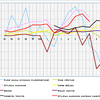
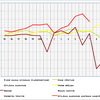
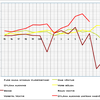
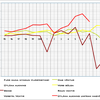
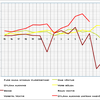

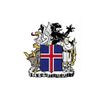
Athugasemdir
Žakka žér fyrir žessa įminningu. Žaš žyrfti eiginlega aš žżša įkvešinn hluta af žessari lżsingu Chomsky. Žjappa henni saman ķ śrdrįtt og birta ęvinlega žegar OECD gefur śt yfirlżsingar sķnar. Svo spurši Ögmundur lķka lykilspurningar ķ morgun. Hver pantar žessi įlit og borgar fyrir žau?
Marķa Kristjįnsdóttir, 3.9.2009 kl. 11:21
Žér er velkomiš aš gera žaš...ekki veitir af aš vaka yfir mötuninn.
Žaš er margt ķ žessari skżrslu frį žeim sem er naušsynlegt aš taka meš ķ reikninginn en svo eru hlutir ķ henni sem eru alls ekki ķ lagi.
Vilhjįlmur Įrnason, 3.9.2009 kl. 11:35
Ętli varphęnunum ķ bśrunum lķši stundum svona eins og manni lķšur eftir aš lesa žessa grein ?....
Haraldur Baldursson, 3.9.2009 kl. 14:58
Žessir skżrsla sannar fyrir mér hversu ill aš sér Ķslenskir rįšmenn eru allmennt illa ķ sér um lögmįl Mammons. Allir stofnanir eru ķ višskiptum: OECD žjónar sķnum langvarandi gróša hagsmun sķnum fyrst og fremst. Ekki trśfręšilegri skyldureglu um fjįrmagnsflutninga frį rķkari eigendum sķnum til žeirra fįtękari til langframa.
Žjónusta žess er ekki ókeypis frekar en okkur önnur višskiptaleg ašstoš alžjóša og innlendra ašila.
Frį 1994 er bśiš aš skuldsetja landiš ķ gegnum meint einkaframtak upp fyrir haus vegna meintrar ašstošar erlendra ašila. Til žess aš fullkomna vel skiplagšar langtķma śtvķkkunar įętlanir hęfs meirihluta EU var geršur samningur meš stjórnskipunarlagavęgi viš EFTA m.a. Įvinningur EU hennar sjónarhorni af yfirrįšum į efnahagsmįlum Ķslenska žjóšrķkisins er ekki aš stękka neytenda markaš sin til žess aš geta gert stęri heildar innkaup į orku og hrįefnum fyrir sķna stórišusamkeppni fullvinnslu og tękni framleišslu.
Ķsland er ekki nógu stórheimamarkašur til aš bakka upp neina fullvinnslu ķ samkeppni Mešlima-Rķkja į innri markaši EU ef allar stórišjur eiga aš hafa ašgang aš allri orku og hrįefnum [žrišja heiminum] į sömu lįmarksveršum.
Til hvers er bśiš aš vera žiggja lįnsašstoš frį EU Sešlabankakerfunu žegar vitaš er frį byrjum aš viš höfum engar forsendur til aš nżta okur langvarandi įvinning aš mišstżringunni?
Meinta stušningsaušmagniš vegna "hugsanlegrar" formlegrar ašildar inn 30 įra langtķmamarkmiša EU mį segja hafi komiš frį umrįšasvęši Žżska Sešlabankans til Ķslands žašan af mestum hluta til Bretaland, austurblokkar EU, Ķtalķu, smį til Danmerkur enn žvķ mišur sumt til USA og til tżndra eyja į Atlandhafi.
Hvaš geršist Ķslenska gjaldmišilsgengiš styrktist įn žess aš verš śtflutnings ķ erlendum gjaldmišli hękkaši. Gott fyrir kaupendur eins og Breta og Hollendinga. Kaup į Ķslandi lękkaši ķ verštryggšum evrum aš jafnaši almennt.
OCED rįšamenn eru ekki greindarminni en sį ritar. Tilgangur hagsmunaašila var allan tķman aš skuldsetja Ķsland efnahagslega til geta lokaš lįnalķnum og tryggt formleg yfirrįš sķšar ķ žįgu EU heildarinnar. Formiš skiptir litlu mįli vegna legu Ķslands. Sviss og Noregur skekkja feguršarsjónarmiš og fullkomnun heildunarinnar hinsvegar.
OECD žjónaši tilganginum og gekk ķ liš meš Forsetanum um aš męra įstandiš śt frį forsendum sem lżšręšislegur mešalgreindur meirihluti taldi réttar.
Hinsvegar hafa žessar forsendur ekkert efnahagslegt mikilvęgi fyrir hagsmuna ašila ķ dag sem heyra mį talsmönnunum. Aš sópa Ķslandi svo undir gleymsku teppi Brussel og upptaka evru eru heldur ekki vopn ķ höndum Ķslands til skapa hér forréttinda heimamarkaš til handa sér og sķnum sem halda sameiginlegum kostnaši ķ lįmarki en almenum hįtekju uppi. Góšu innflęši opnu og lķka į žaš sem veldur kostnaši. Rekstrar afgangur ķ Kerfi meš hlutfalslegasta minnsta lįnsžjónustugeirann getur fariš śr landi ķ žįgu alžjóšagóšgeršamįla.
60 milljónir eiga helmings alls vel grunnmenntaši Ķslendingar geta sérhęft sig ķ gęša fullvinnsluframleišslu og žjónustu viš žęr til langframa. Til žurfum viš einangra afęturnar fį landinu. Gera hlutina og hugsa žį sjįlf.
Jślķus Björnsson, 3.9.2009 kl. 21:08
Bęta viš athugasemd [Innskrįning]
Ekki er lengur hęgt aš skrifa athugasemdir viš fęrsluna, žar sem tķmamörk į athugasemdir eru lišin.